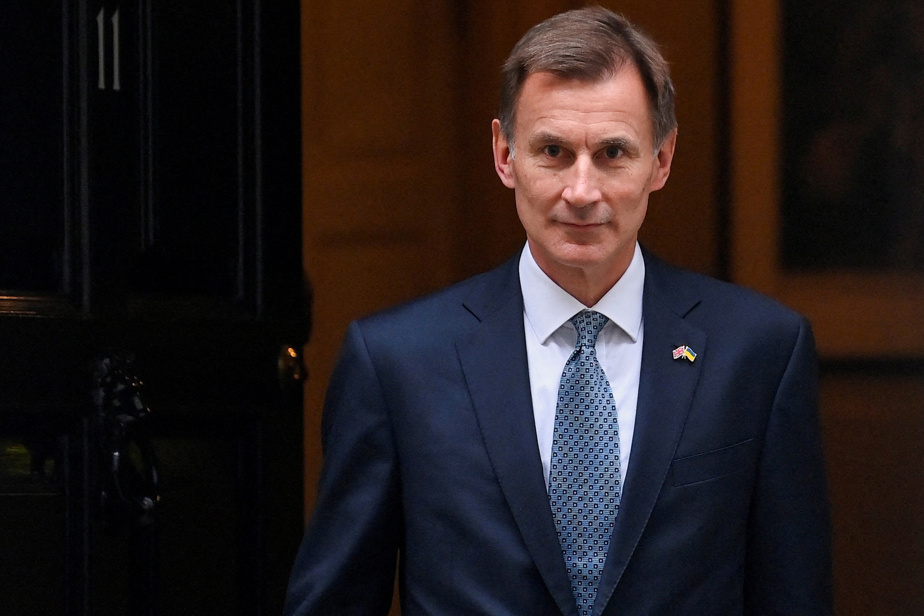(LONDON) Britain’s Finance Minister Jeremy Hunt has criticized market “distortions” caused by massive US green energy subsidies, but London’s announcements of its own energy and environment strategy, which push back to the fall of new funding, are far from convincing.
“Transforming our energy system is no longer just about fighting climate change, it’s also a matter of national security,” Hunt said Thursday in an op-ed published by The Times daily, also pointing to “threats of protectionism in the global economy.
Soaring oil prices in the wake of the war in Ukraine hit the United Kingdom, which is highly dependent on gas, particularly hard.
Mr. Hunt assured British MPs on Wednesday that the government was studying possible measures to help the country remain “competitive”, but that we would have to wait for the autumn budget presentation to know the details.
“We are not going to compete with our friends and allies in a global race for subsidies,” which are “distorting” the market, he said Thursday, as US President Joe Biden’s climate plan and his billions of dollars to attract business worries in Europe.
The Chancellor of the Exchequer clarifies that the UK will prefer to “target public funding strategically in areas where the UK has a clear competitive advantage”.
While waiting for the details of this funding in the fall, with the country’s commitment to carbon neutrality in 2050 in sight, government announcements on Thursday disappointed opposition and environmental NGOs, who notably accuse the executive of recycling of already public measures.
“These announcements are most notable for their glaring omissions” on onshore wind, home insulation or subsidies in response to Washington’s aid, denounced opposition Labor MP responsible for energy issues Ed Miliband.
The government on Thursday reemphasized a number of measures already announced, such as a £20 billion investment over 20 years in carbon capture, its desire to accelerate the development of nuclear, offshore wind, “green” hydrogen or electric vehicle charging points.
“These fragmentary, rehashed and confusing announcements are simply not enough to effectively address climate change or provide safe and affordable energy to households,” Greenpeace said in a statement.
“Ministers should step up and speed up the race for carbon neutrality, but these plans seem lame, halfhearted and dangerously lacking in ambition,” Friends of the Earth said.
The NGO says it will scrutinize announcements about the government’s carbon neutrality strategy and could take legal action “if ministers fail again”.
“Private investment will be crucial to achieving carbon neutrality” which will require additional investment “of £50-60 billion by the end of the 2020s and the 2030s”, the government acknowledged in a document , also published on Thursday, on its green finance strategy.
London says in particular that the transition is “a growth opportunity for the United Kingdom”.
But while the government “has grasped the magnitude of the climate challenge with a sweeping plan to boost green energy production”, it “must not forget the businesses” who will see their spending skyrocket to meet the targets of reduction in energy consumption, warn the British Chambers of Commerce.
The electricity company Drax, whose use of biomass to green its production is criticized, is not part of the first carbon capture and storage projects retained by the government, which reduced its action by 1. 57% to 565.50 pence on the London Stock Exchange around 8:20 a.m. EST.
A report by the Climate Change Committee (CCC), a body responsible for advising the government on its climate strategy, affirmed for its part on Wednesday that despite the already clearly visible consequences, the United Kingdom has not made sufficient efforts to prepare for the countries to adapt to global warming.
